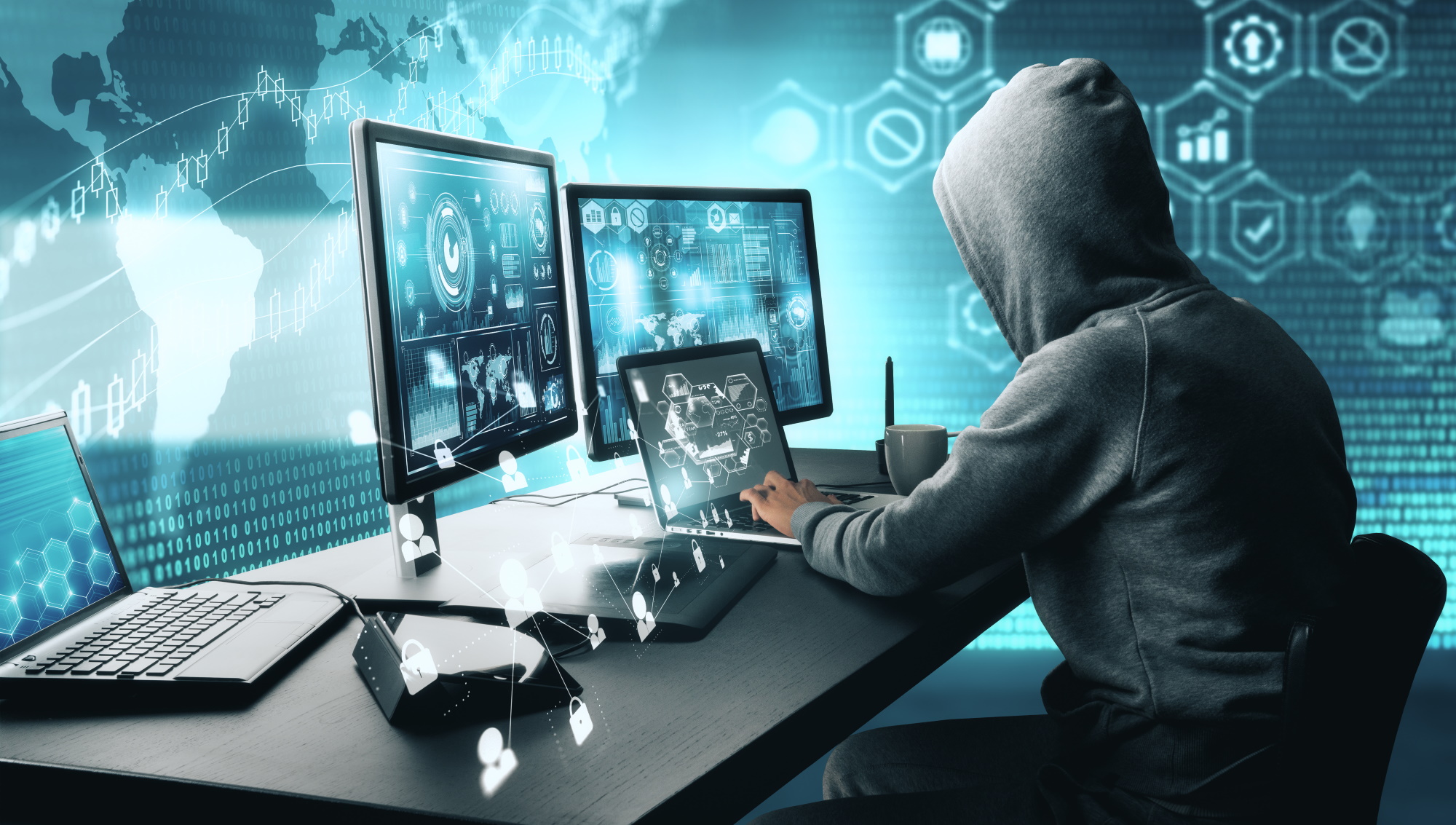Can a VPN be hacked or tracked?
Is a VPN as super safe and secure as you'd expect it to be? Or can hackers still get to your data?


If you're looking through our list of the best VPNs to find the most secure option, you may be wondering just how secure even that is. Good on you, security is all about foreseeing potential threats and weaknesses, so you're halfway there. We'll do the rest for you with this explainer.
To cover the basics, a VPN (or virtual private network) works to make you secure and anonymous online by encrypting your data and sending it through – often private – servers in different locations. As a result this can also make you appear elsewhere. By assigning you a new IP address, your identity is hidden throughout.
But can private servers, strong encryptions and things like leak protection truly keep you secure and anonymous online? Or are you open to potential threats like hacking? After all, even one of the apparently most secure VPNs, NordVPN, suffered a data breach in 2018. There's more to all this than meets the eye, of course, so read on to clear it all up.
- Discover the very best Netflix VPNs for unlocking content
- So...how do VPNs actually work?
Can a VPN be hacked?
A VPN is a collection of servers. Often, in most cases these servers won't store data for a period of time, meaning it's tougher to access. In the case of ExpressVPN, for example, data is managed using RAM so it's never actually written onto any drives.
All that said, any server can, potentially, be compromised. The NordVPN servers were penetrated and some data was accessed. However the company states that nothing of value was accessed as little was available since most was either encrypted or there was no actual data on users stored anyway.
It's worth keeping in mind that folk say anything can be hacked with enough time and computing power. But much like a bike left unlocked might be taken by an opportunist, if it's locked up that stops most people even trying to take it. A VPN is way more than a lock but it will certainly keep you safe from most potential threats. We'd love to say it'll keep you safe from all, as we almost feel confident enough to say that, but being realistic we're going to simply say a VPN will make you far safer than you are now.
Can I be tracked using a VPN?
Since a VPN will assign you a new IP address and run your data through different servers, that makes tracking you very, very difficult. Even if someone was somehow able to get to your IP address, it wouldn't actually be yours, but one that's hidden behind the VPN's server.
Most VPN provides don't keep data on users meaning that your assigned IP shouldn't be linked to your physical address anyway – keeping you secure.
It's the reason that using the best VPN for China has become so popular and useful, allowing those located there (either permanently or temporarily) to get around websites otherwise blocked by the government.
What keeps me secure when using a VPN?
One of the things to look out for when picking a VPN is leak protection. Since your data is packaged up, encrypted, then sent off down a tunnel, there are ways of getting to that via a leak in the tunnel. Sure, the data is encrypted anyway so is largely useless, but a leak protection means that it's less likely to be attainable by a malicious attacker.
A kill switch is another useful tool which works when your VPN connection drops. Once this is detected, and the VPN isn't running properly, it will instantly cut off all communications with the internet. This keeps your real IP address protected from any wouldbe hackers or snoopers.
Can protocols protect my VPN connection?
Lots of protocol options can help you with security. Some work faster than others while some are more secure than others. So you can get the ideal connection you want to suit your needs. For example, if you're streaming in 4K or using your VPN for Netflix and want speed then you might use a different protocol to when you're doing online banking or emailing sensitive documents, for example.
So looking out for a VPN that offers lots of protocols is ideal if you're someone who wants to vary security and speed to suit your tasks.
Which is the best VPN to avoid hacking?
From our extensive testing we've found that the best VPN is ExpressVPN, with superb enterprise-level encryption security, great connection speeds across its many server and lots of protocol options.
ExpressVPN not only has lots of international servers, high-speed connections and strong security but also offers superb 24/7 live chat customer support – which is great for finding the most secure setup for what you're doing.
Get all the latest news, reviews, deals and buying guides on gorgeous tech, home and active products from the T3 experts
Luke is a freelance writer for T3 with over two decades of experience covering tech, science and health. Among many things, Luke writes about health tech, software and apps, VPNs, TV, audio, smart home, antivirus, broadband, smartphones and cars. In his free time, Luke climbs mountains, swims outside and contorts his body into silly positions while breathing as calmly as possible.
